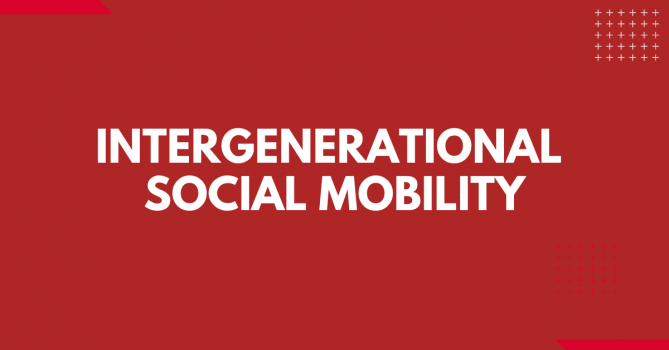Definition of Intergenerational Social Mobility
The term “social mobility” refers to how a person’s social standing changes from one status to another. Intergenerational social mobility pertains to any shift in the social status of members of the family that occurs between various generations.
Sociological Explanation
It compares the socioeconomic status of two different generations. The occupation of parents and children is henceforth the basis of comparison. Immobile families have similar salaries and employment for both generations. Cultural and traditional relationships consequently pave the way for immobility traits. Intergenerational mobility, education, and professional jobs have helped the younger generation transform their lives.
Intergenerational mobility is essential to a society’s justice and economic viability. In a community of high mobility, a person’s well-being is less influenced by their parents’ socioeconomic situation than by people in the same generation. Policymakers must create policies that lessen inequality of chances at all stages of life, from prospects for developing human capital to delivering economic opportunities for individuals to improve mobility.
In the United States, a significant portion of sociological research on status attainment involves investigating how socioeconomic advantage is passed from generation to generation.
Example
The son of an agricultural laborer becoming the president of a nation is an example of intergenerational mobility. The forward policies of the government that aid human capital formation leads to intergenerational mobility.

